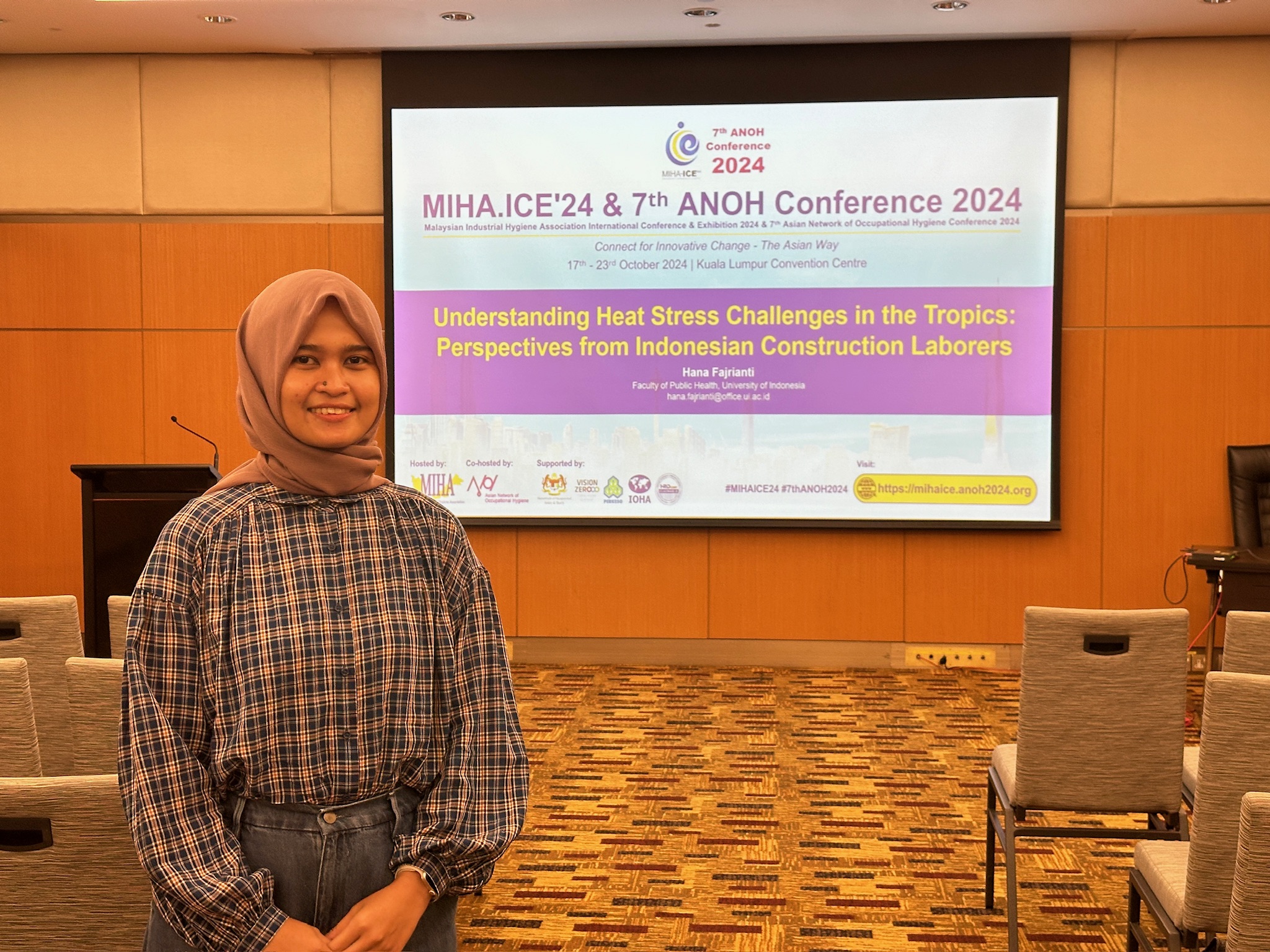Hana Fajrianti, a Master’s student in the OHS program at the Faculty of Public Health (FPH) at the Universitas Indonesia (UI), has once again achieved international recognition. Hana was selected as the sole representative from Indonesia at the International Student Symposium (ISS) – Malaysian Industrial Hygiene Association International Conference & Exhibition 2024 and the 7th Asian Network of Occupational Hygiene Conference 2024, held on October 20, 2024, in Kuala Lumpur, Malaysia.
The International Student Symposium (ISS) is an event designed to connect graduate students conducting research in the fields of Occupational Health and Safety (OHS), industrial hygiene, and risk management. Through this symposium, students are invited to present their research to an international community of OHS and industrial hygiene practitioners, academics, and professionals.
ISS also serves as a platform for students to share knowledge, expand their professional networks, and receive feedback from experts on their ongoing research. This program is designed to enhance the quality of research and broaden students’ understanding of best practices in workplace health and safety.
At the symposium, which was also attended by participants from Malaysia and Taiwan, Hana, as the only participant from Indonesia, presented her research titled “Understanding Heat Stress Challenges in the Tropics: Perspectives from Indonesian Construction Laborers” during the podium presentation session. Her research aims to understand the perceptions and awareness of heat stress among Indonesian construction workers, assess the availability and adequacy of measures to mitigate heat stress risks, and evaluate the impact of environmental heat exposure on the wellbeing and safety of workers across various types of construction projects.
“Construction workers in tropical regions, such as Indonesia, face unique challenges due to high temperatures. Heat stress can pose significant health and safety risks, especially in the civil construction sector, where workers often perform physically demanding tasks under the scorching sun,” Hana explained. Her research utilized a data-driven approach, including quantitative analysis such as Spearman correlation analysis and logistic regression, to understand the influence of variables such as project type, job scope, work hours, and worker age on heat stress risks.
Hana mentioned that her research findings indicated that workers in construction and architectural projects have a higher risk of dehydration and fatigue. Based on her research findings, she recommended a combination of heat stress management training and the provision of physical facilities, such as shaded areas and drinking water, as effective approaches to reducing heat stress risks.
Hana stated that participating in this event was highly beneficial for honing collaboration skills, exchanging knowledge, and enhancing her capacity in identifying and managing health risks in the workplace.

